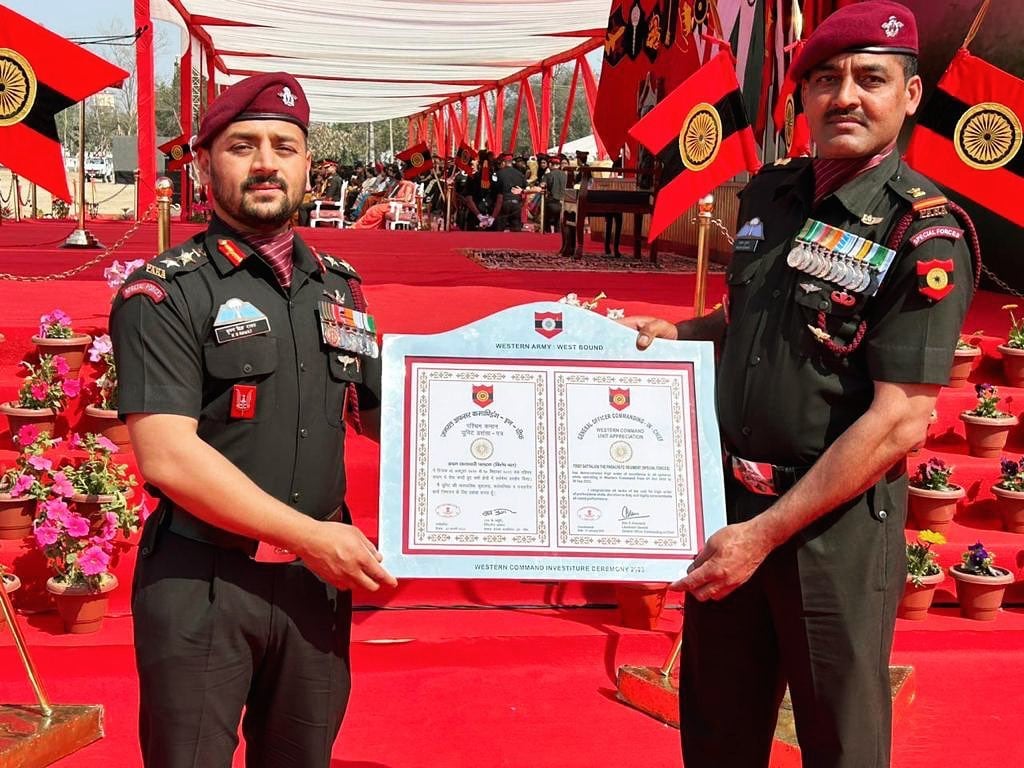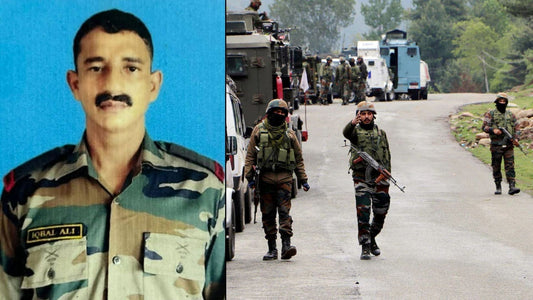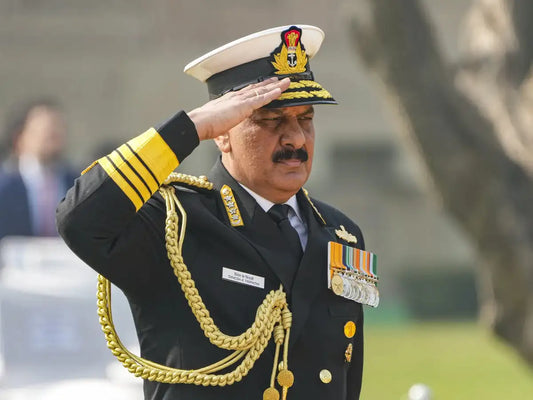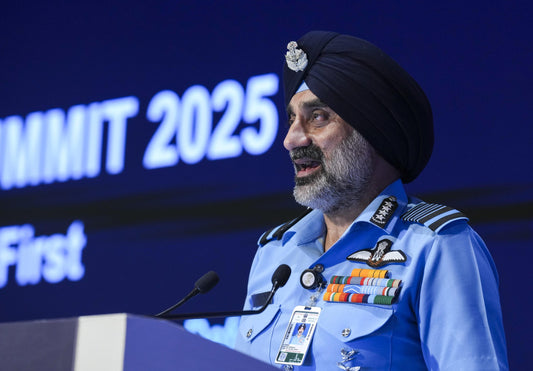The Pivotal Role of Subedar Majors: Leadership, Responsibilities, and Respect in the Indian Army

The position of Subedar Major, often referred to as SM Sahab, holds a crucial place in the hierarchy and operations of the Indian Army. This role is significant due to its leadership responsibilities and its impact on personnel management and operational activities. As the highest-ranking Junior Commissioned Officer (JCO), the Subedar Major serves as a key pillar within a unit, offering essential support and guidance to maintain optimal performance and soldier morale. Their influence extends over various areas, including discipline, administration, and ceremonial duties, making them vital to the daily functions of military operations.
Historical Context
To understand the significance of a Subedar Major, it is important to look back at the historical development of the JCO rank within the Indian Army. This position emerged during the colonial era when the British Indian Army recognized the need for non-commissioned officers to bridge the gap between higher-ranking officers and enlisted soldiers. Historically, JCOs have taken on important leadership roles, often acting as custodians of regimental traditions and boosting morale.
The Subedar Major rank has adapted over time, evolving alongside the army's structural changes while maintaining its core role as a leader and advisor. Today's Subedar Majors uphold historical practices while incorporating modern strategies in communication and efficiency, reflecting the dynamic nature of military leadership.
Powers and Duties of Subedar Major
The Subedar Major carries a wide array of responsibilities that highlight their extensive authority and the trust placed in them by both commanding officers and the soldiers under their charge. Here, we explore these duties in greater detail.
Senior Advisor to the Commanding Officer
One major responsibility of a Subedar Major is to act as a senior advisor to the Commanding Officer (CO). This advisory role covers a range of important issues, including troop welfare, discipline, unit morale, and general functionality. The wisdom and experience that SM Sahab brings to this role make them a trusted confidant for the CO, aiding in decisions that directly affect the unit's success.
Discipline and Conduct
Discipline is a fundamental component of military effectiveness, and the Subedar Major has a critical role in maintaining it. They ensure compliance with military standards, address minor violations, and impose necessary consequences for any misconduct. By setting an example, they act as role models, emphasizing the importance of integrity and discipline for junior ranks.
Administrative Duties
Subedar Majors are also pivotal in managing administrative tasks within their units. This includes maintaining personnel records, overseeing leave applications, and ensuring compliance with military regulations in all documentation. SM Sahab assists the CO and adjutant in implementing directives from higher command, thereby streamlining operational processes.
Training Oversight
Another essential duty involves planning and overseeing training activities. The Subedar Major ensures that soldiers, JCOs, and Non-Commissioned Officers (NCOs) receive the training necessary to perform their operational roles. This oversight not only enhances combat readiness but also promotes an environment where continuous learning and improvement are prioritized.
Communication Bridge
The Subedar Major serves as a critical communication bridge within the military structure, ensuring clear communication between officers and enlisted personnel. This role is vital for maintaining a healthy command climate, relaying soldiers' grievances to higher ranks, and ensuring that orders from superiors are fully understood and executed.
Ceremonial and Protocol Leadership
Beyond operational duties, Subedar Majors organize and oversee ceremonial events such as parades and guards of honor. They ensure these events uphold military traditions, reinforcing camaraderie and expressing respect for the institution and its customs.
Welfare Advocacy
A key aspect of the Subedar Major’s responsibilities is advocating for the welfare of soldiers and their families. By addressing grievances and administering welfare programs, they play a significant role in fostering a supportive environment within the unit, thereby enhancing morale and cooperation.
Custodian of Tradition
The Subedar Major is responsible for preserving the unit's traditions, customs, and ethos. This includes educating younger soldiers about the unit's history and ensuring that its values are passed down to future generations, thus maintaining a rich military heritage.
Unit Security and Command
While primarily a support role, the Subedar Major is also responsible for the security of all personnel in the unit. In the absence of higher officers, an SM Sahab may take temporary command and make tactical decisions to ensure operational readiness and unit cohesion.
Financial Responsibility
In many capacities, the Subedar Major acts as the unit or regiment cashier, overseeing all financial transactions. This role requires a solid understanding of military budgets and fiscal discipline, underscoring their role in maintaining operational efficiency.
Mentorship
Mentorship is another vital aspect of the Subedar Major's duties. By nurturing leadership qualities and professionalism among junior officers and soldiers, they significantly contribute to the development of future military leaders, ensuring a stable and capable military hierarchy.
Statistical Data and Research Insights
An understanding of the Subedar Major's impact requires examining the broader context of the Indian Army's organization and operations. As of 2022, the Indian Army comprises over 1.4 million active personnel, with a substantial network of JCOs and NCOs forming a crucial part of ground-level operations. As the senior-most JCOs, Subedar Majors are strategically positioned to influence morale and effectiveness across these ranks.
Comparative Analysis
While the role of Subedar Major is specific to the Indian Army, a comparative analysis with other Commonwealth nations is insightful. Similar ranks, such as the "Warrant Officer" in the British Army, play comparable roles, acting as essential links between officers and enlisted men and having substantial responsibilities for discipline and training.
The distinctive feature of the Subedar Major is their active involvement in ceremonial roles and their stewardship of regimental traditions. This focus on tradition and heritage underscores the unique cultural and operational demands of military service in India.
Challenges and Solutions
Despite their considerable authority, Subedar Majors face various challenges, including maintaining discipline amidst evolving social norms, addressing modern welfare needs, and adapting training programs to technological advancements.
A significant challenge is maintaining morale amid fluctuating conditions, both socioeconomic and operational. To address this, implementing a strong welfare framework that ensures the well-being of soldiers and their families is crucial. Providing access to mental health services and enhancing communication avenues can positively impact morale.
Future Trends and Predictions
As the Indian Army modernizes, the Subedar Major's role is expected to evolve to meet changing operational demands and technological progress. Trends indicate an increasing reliance on technology-driven training solutions, which may require Subedar Majors to adapt their oversight methods.
Additionally, as the Indian Army includes more women in various roles, Subedar Majors will be key in fostering an inclusive environment and managing a diverse workforce, contributing to a more cohesive and effective unit.
Conclusion
In conclusion, the Subedar Major, or SM Sahab, embodies a multifaceted role that is integral to the operational and ceremonial framework of the Indian Army. Their duties span leadership, discipline enforcement, administrative support, and cultural preservation, making them a crucial part of military life. With the historical importance of the position, along with evolving challenges and future innovations, the role of the Subedar Major remains vital to the Indian Army's mission. For those seeking to understand the complexities of military leadership, the Subedar Major offers a unique perspective on balancing tradition, education, and operational excellence.
For aspiring military personnel or those interested in better understanding Army dynamics, resources available through platforms like SSBCrack and SSBCrackExams offer valuable insights. Engaging with such materials further enhances the understanding of military roles, traditions, and the significance of service within India’s defense framework.



















